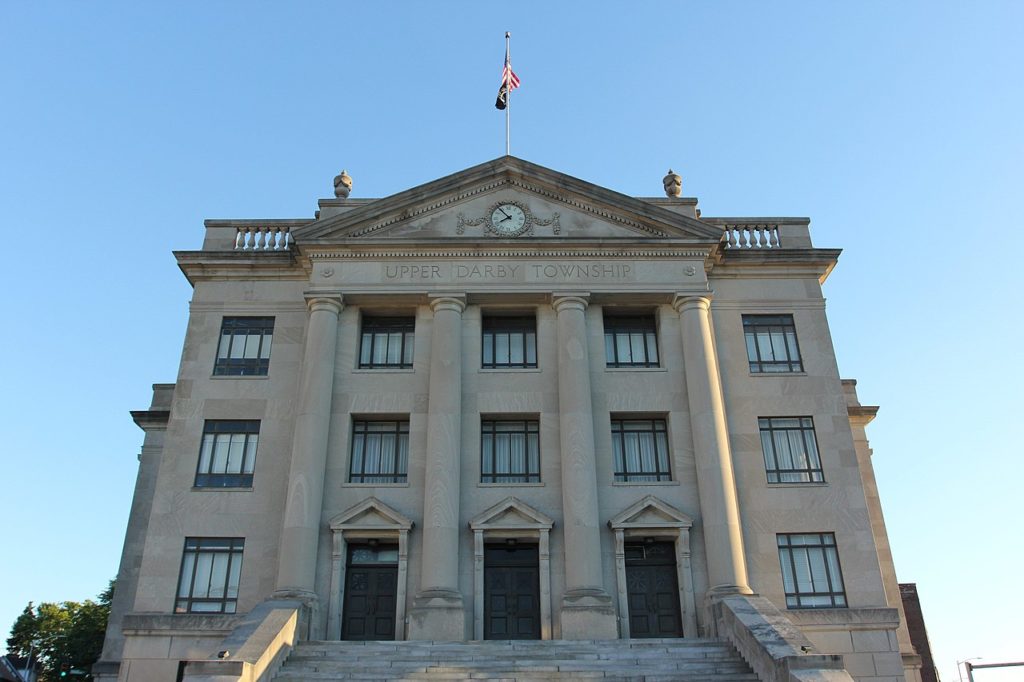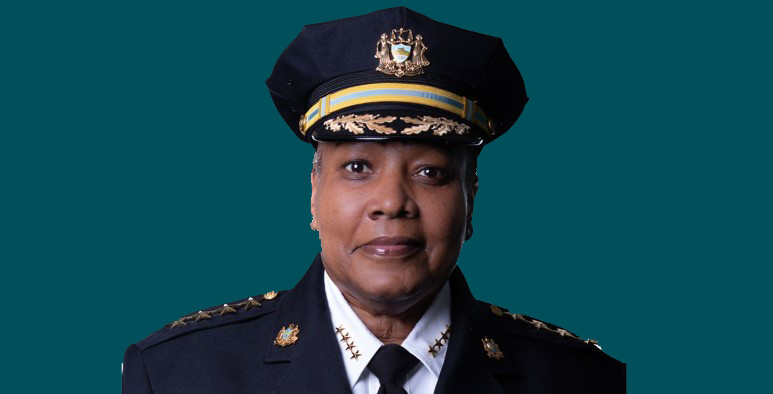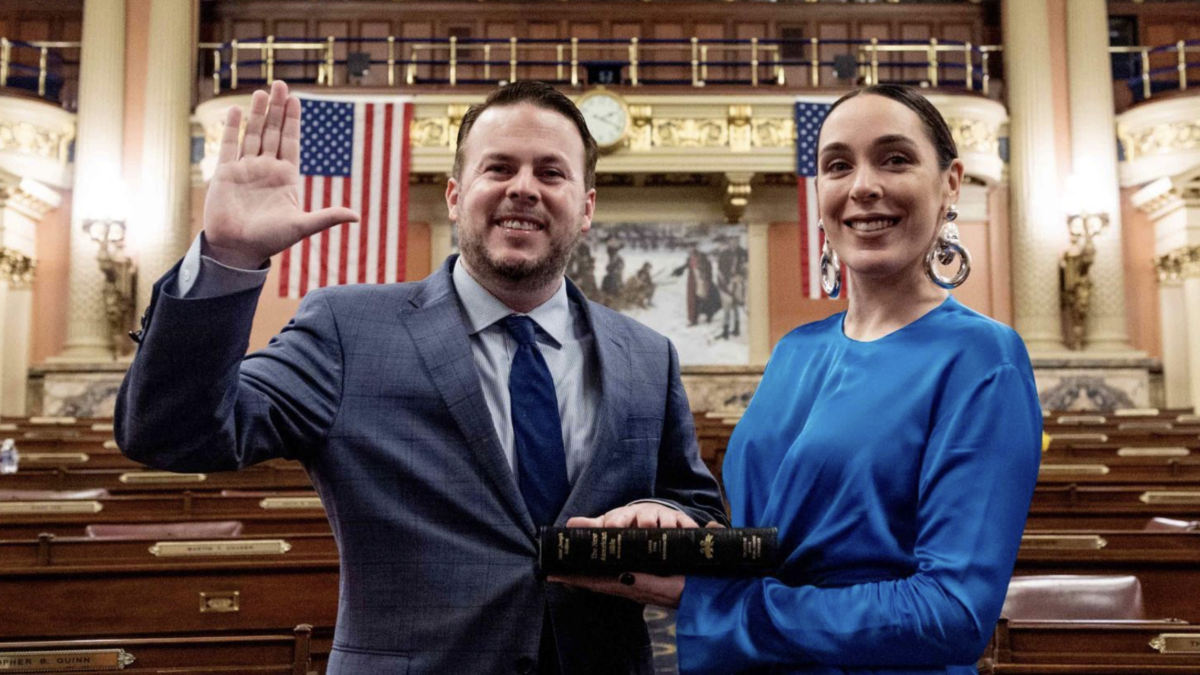Upper Darby income tax, speech limits, and ARPA reversal fail in court
A Delaware County court recently killed Upper Darby’s new income tax and restrictive public forum rules as well as a policy to effectively defund a youth arts center.
The rulings not only quash fiscal policies expounded by Mayor Ed Brown (D) and his allies on Township Council but rebuke the jurisprudence of Solicitor Sean Kilkenny and his associates. These officials are appealing the arts center decision to the Pennsylvania Supreme Court.
Last Wednesday, Delaware County Court of Common Pleas Judge Spiros E. Angelos found that votes on the earned income tax (EIT) and forum rules cannot stand because they occurred during Council’s first September meeting. The votes therefore breached the timetable set forth in the Upper Darby Home Rule Charter and Administrative Code.
“The first meeting of the voting month is intended to be in workshop format and whereby final action on an ordinance or resolution is discouraged and reserved for emergency circumstances only,” Angelos wrote. “This Court finds that the passing of [the forum resolution] and [EIT] on September 4, 2024 violated [the code’s pertinent section].”
Brown and most Democratic Council members favored the one percent tax, fearing an $11-million budget shortfall in Fiscal Year 2025. More recent data however suggest the township will see a roughly $2.6-million deficit next year. When the levy passed and Brown signed it, seven Upper Darby residents sued, arguing the township not only conducted the vote improperly but suppressed opposition with new speech restrictions.
Before the township can adopt a new law, community members must have an opportunity to officially comment. September’s forum resolution set “rules of decorum” limiting each citizen’s remarks to five minutes and the entire comment period to between 30 minutes and one hour.
If everyone took the full five minutes, that would mean only twelve people in a township of 86,000 could speak. Kilkenny and Council President Hafiz Tunis Jr. cut off several EIT opponents from continuing their orations past five minutes on September 4. Citing the resolution that had just passed, they forbade two others from speaking at all.
While lead plaintiff John DeMasi said constitutional free speech rights were among the many legal concerns raised by the forum policy, he extolled Angelos’s nullification of that measure and the income tax on procedural grounds.
“We’re very happy,” DeMasi said. “We’ve been trying to get the township to follow the law. They’ve literally told us that they’re not going to follow the law — now a judge said, ‘No, you have to follow the law.’”
He said he and his co-plaintiffs are mulling further legal action to compel recognition that the township unduly curbed their freedom to petition their government. Meanwhile, he hopes last week’s ruling chastens a mayor, solicitor, and municipal legislature who he thinks often fail to heed their township’s governing documents.
“The Home Rule Charter and administrative code are there to protect the residents from a government that’s going to abuse its power, and I think we saw that when a judge gets ahold of [those laws], they’re very effective,” DeMasi said. “I think the community won and I hope that this makes the administration and Township Council start thinking about who they are working for. It also shows that when the residents band together to fight for their rights, they can win.”
DeMasi is also an original plaintiff in litigation to compel the township to spend money from the 2021 American Rescue Plan Act on its original purposes. The federal government initially bestowed $41.8 million on Upper Darby; last autumn the township legislated to allot the last $14.4 million of that amount to various projects including community and economic development items and a Drexel Hill Senior Center.
Earlier this year, DeMasi and other petitioners won a court battle to maintain the township’s spending commitments after Brown and a Council majority attempted to move many of the allocations to separate accounts. But that ruling didn’t apply to the $800,000 appropriated to the Upper Darby Arts and Education Foundation to create the Barclay Square Arts and Education Center. Now, thanks to a November 21 decision by Common Pleas Judge Barry C. Dozor, Upper Darby must stick to its 2023 plan to give the foundation that money to build the youth-oriented facility.
Advocates of reversing the 2023 legislation argued special accounts were needed to protect any funds that remained uncommitted at the end of this year from repossession by the federal government. Opponents responded that the township’s obligation of the funds protected them from retrieval. They feared, based on statements Brown made, that the money would end up being spent on unrelated items.
Dozor agreed with the foundation and other plaintiffs.
“Upper Darby Township may not repurpose encumbered funds for other uses,” he wrote.
DeMasi lauded the lower court’s decision.
“It was a victory for our community, a victory for the kids, and a victory for the Upper Darby Arts and Education Foundation,” he said. “I don’t understand why the township is spending so much time, money, and effort to get their hands on federal money for the children. This was never money from the coffers of Upper Darby — this is not Upper Darby tax revenue — this is federal money that was unanimously passed and enacted by ordinance for the Upper Darby Arts and Education Foundation.”
Councilman Brian Andruszko (R-3rd District), who supports adhering to the original ARPA ordinance, agreed with DeMasi and praised the appeal.
“The Arts and Education Center would be a valuable asset to this community and it’s puzzling to me why the Township would elect to spend additional taxpayer funds to fight the court’s decision,” he told Broad + Liberty. “We were provided these ARPA funds by the federal government, the ordinance to support this new Arts and Education Center was passed eleven-to-zero last year by the council, and now the county courts have affirmed the commitment of these funds. The Township needs to do the right thing and award the foundation the money.”
Councilpersons Meaghan Wagner (R-1st District), Matt Silva (D-At-Large), and Laura Wentz (I-At-Large) also opposed the Brown administration’s ARPA changes, EIT, and public forum policy. Wentz, a former Democrat, reprehended the appeal as a hindrance to an institution that will benefit Upper Darby’s young people by offering programming within walking distance of numerous public schools.
“The funds will help the youth of Upper Darby, the residents of Upper Darby, to create an incredible cultural arts center that will give them access to all different aspects of the arts that are not accessible right now,” she said. “It’s appalling that the township won’t just uphold the ordinance as per the judge’s orders and give them the money. Just give them the money — just do it.”
Neither Kilkenny, Brown, nor any councilpersons sharing the mayor’s views of these cases returned requests for comment. While the Supreme Court may opt to hear the ARPA issue, the township’s next move on the income tax and forum decisions is yet unknown. Wentz and Andruszko said they hope the administration and Council majority drop the measures.
“I am glad that Judge Angelos is ensuring the rules of the Upper Darby Home Rule Charter are being followed,” Andruszko said. “I am not aware of any action planned in response to this ruling, but I do hope that both the ordinance and resolution are reconsidered before attempting to bring them both back to the table. I am opposed to both of these, as I had expressed at the time when we voted on them.”
Sharing her colleague’s plaudits for the ruling, Wentz registered particular distaste for the township’s curtailment of speech on a tax that would have burdened many residents. She encouraged members of the public to share their views on unresolved matters like the arts center spending. The next Council meeting is at 7 p.m., Wednesday, December 4 at the Municipal Building on 100 Garrett Road.
“[The EIT] has a great effect on every resident, every worker, in the township,” she said. “And you’re restricting their ability to talk about a tax that will directly affect them. It’s unconscionable; it’s unacceptable and I’m so thankful to the judge for following the law and deciding that [the mayor and Council majority] were in violation of the Home Rule charter and Administrative Code.”
Bradley Vasoli is a writer and media strategist in Pennsylvania.You can follow him on X at @BVasoli.




